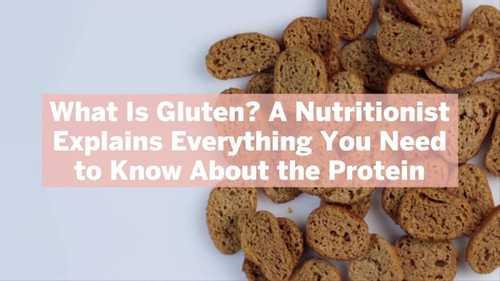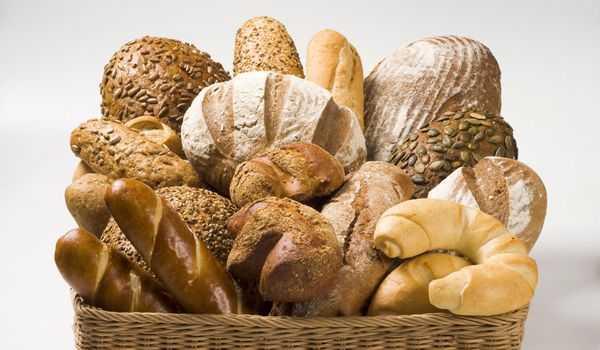The Label 'Gluten-Free' Is Everywhere-But Should You Actually Eliminate It From Your Diet?
Curated from: health.com
5
1
Explore the World's Best Ideas
Join today and uncover 100+ curated journeys from 50+ topics. Unlock access to our mobile app with extensive features.
Understanding gluten
There's much confusion about if going gluten-free is a good option or an unfounded fad.
Gluten is a type of protein. It is naturally found in wheat, barley, rye, and triticale. As an additive, it can bind food together, which means you can find it in products like salad dressing or vitamins.
48
1.91K reads
The bad reputation of gluten
There is a perception that gluten is harmful to everyone and should be avoided. But research does not support this. Long-term studies found no association between long-term dietary gluten consumption and the risk of heart disease or inflammation of the colon lining. Some people do have medical conditions that make them unable to tolerate gluten, such as celiac disease or an autoimmune disorder.
You can go gluten-free as long as you consume nutrient-rich whole food sources of carbohydrates.
28
270 reads
Why people go on a gluten-free diet
- Some medical conditions require strict gluten avoidance, such as celiac disease.
- Some practitioners recommend people with autoimmune disorders, such as inflammatory bowel disease, Hashimoto's thyroiditis, psoriasis, lupus, and rheumatoid arthritis, avoid gluten.
- People with non-celiac gluten sensitivity can have side effects from consuming gluten, such as flu-like feelings, bloating, mental fogginess, and fatigue.
- Dermatitis herpetiformis (DH) is a skin rash that results from eating gluten.
27
260 reads
Gluten-free foods
Gluten-free foods can also be highly processed and lack nutrients. The gluten-free craze has caused a boom in highly processed foods made with refined gluten-free grains, such as white rice. The fact that a product is gluten-free does not mean it is automatically healthy.
Gluten-free whole grains full of vitamins, minerals, antioxidants, and fibre, include brown rice and quinoa. Gluten-free, carb-rich foods include sweet potatoes and fruit.
28
203 reads
Beware of gluten myths
- Many people say they eat gluten-free, but they've just eliminated wheat-based foods like bread, pasta, and bagels. Wheat is only one source of gluten.
- Some people think gluten is found in every type of grain. Gluten-free grains include rice, corn, quinoa, amaranth, buckwheat, millet, sorghum, teff, and oats.
- Some people think all carb-rich foods contain gluten. The truth is that most whole foods are naturally gluten-free, except for a handful of grains.
33
235 reads
IDEAS CURATED BY
Rachel P.'s ideas are part of this journey:
Learn more about health with this collection
How to handle conflicts
How to identify and regulate emotions
How to develop self-awareness
Related collections
Similar ideas
5 ideas
The Paleo Diet - A Beginner's Guide + Meal Plan
healthline.com
6 ideas
4 ideas
Celiac Disease and Gluten Intolerance - Tayler Silfverduk
tayler.silfverduk.us
Read & Learn
20x Faster
without
deepstash
with
deepstash
with
deepstash
Personalized microlearning
—
100+ Learning Journeys
—
Access to 200,000+ ideas
—
Access to the mobile app
—
Unlimited idea saving
—
—
Unlimited history
—
—
Unlimited listening to ideas
—
—
Downloading & offline access
—
—
Supercharge your mind with one idea per day
Enter your email and spend 1 minute every day to learn something new.
I agree to receive email updates

